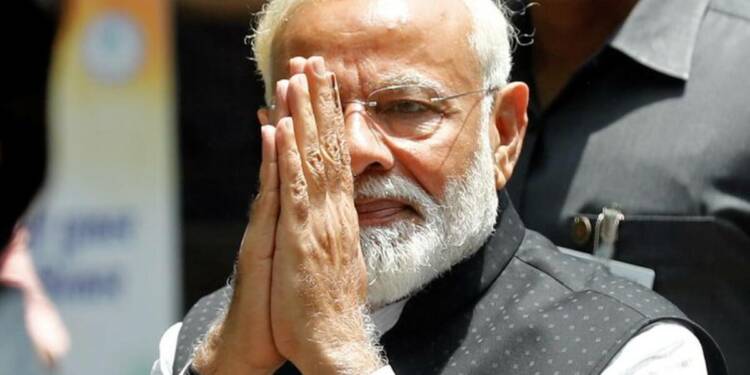The Information Technology industry of India is the backbone of the Indian economy and brings more than 100 billion dollars of foreign exchange reserves to the country every year. The total size of the industry is around 200 billion dollars and contributes 7-8 per cent of India’s GDP and the pandemic has given the chance to the industry to expand further.
However, the laws related to Information Technology (IT), Information Technology enabled services (ITes), Business Process Outsourcing (BPO) are still in the license-permit raj era; for example, work from home for IT companies was illegal until the Modi government scrapped the law.
So, the Modi government has decided to liberalize and modernize the rules and regulations of the IT sector to improve ease of doing business for the companies. The press release of the Department of Telecom reads, “It is clarified that the registration requirement for OSPs has been done away with altogether and the BPO industry engaged in data-related work have been taken out of the ambit of OSP regulations. In addition, requirements such as deposit of bank guarantees, the requirement for static IPs, frequent reporting obligations, publication of network diagrams, penal provisions etc. have also been removed. Similarly, several other requirements, which prevented companies from adopting ‘Work from Home’ and ‘Work from Anywhere’ policies have also been removed.”
The industry leaders hailed this as a major reform. “The reforms of Other Service Provider regulations for BPO/BPM industry is breath-taking in its simplicity. Truly a case of dramatic Ease of Business in the digital world!” tweeted Nandan Nilekani.
The reforms of Other Service Provider regulations for BPO/BPM industry is breath-taking in its simplicity. Truly a case of dramatic Ease of Business in the digital world! https://t.co/hIGVMtUuBq
— Nandan Nilekani (@NandanNilekani) November 6, 2020
The government advisors, like Principal Economic Advisor Sanjeev Sanyal, argued that this will create another 10 lakh jobs in the ITeS/BPO industry in the next five years. “Major reform announced for the ITeS/BPO industry. Here is the notification on the radical liberalization of regulations for the sector. Mark my words, this will create millions of jobs in the next 5 years,” tweeted Sanyal.
Major reform announced for the ITeS/BPO industry. Here is the notification on the radical liberalization of regulations for the sector. Mark my words, this will create millions of jobs in next 5 years 1/n https://t.co/YMAzazGb8v
— Sanjeev Sanyal (@sanjeevsanyal) November 5, 2020
Ravi Shankar Prasad, the Minister of Communication and Minister of Electronics and Information Technology, has taken some path-breaking decisions since the Modi government came to power in the second term. From Production Linked Incentives (PLI) to handset manufacturers to liberalization, modernisation of the industries which are under the ambit of these ministries, Ravi Shankar Prasad has taken decisions that would help the country to become a five trillion dollars economy by 2025.
Riding on the growth opportunities in the United States and Europe, the Indian IT companies posted double-digit growth in the last three decades. However, in the last few years, these markets have saturated, and therefore, the companies are looking for new avenues of growth in terms of services offered as well as areas geographics covered.
The Indian government is aggressively promoting medium and small ITeS/BPO companies in non-English speaking regions like Africa, Latin America, China and Southeast Asia because knowledge of English is essential for coding at the commercial level and therefore these countries cannot train software engineers/BPO employees in large numbers.
Also, the ITes/BPO companies are now operating in new avenues like telebanking, telemedicine and tele-trading services with the increase in digital connectivity, and have become major service providers to western countries. Therefore, the liberalization of these rules was necessary for the companies to grow.
“The idea is to open up the ITeS/BPO sector so that India becomes the “backoffice of the world” and perhaps in some segments even the “front office”. The Covid crisis has made the world comfortable with doing business through digital platforms. India will make the most of it,” wrote Sanjeev Sanyal.
The pandemic has accelerated the adoption of Information and Communication Technology (ICT) by businesses across the world. Given India is already a dominant player in the sector with a 200 billion dollars industry (more than half of which comes from exports), the adoption of ICT would bring a massive revenue boom for Indian IT companies, and this time source will not only be the western countries but Asia-Pacific too.























